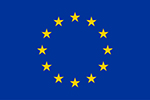Home ⟩ Research ⟩ Research Projects ⟩ ORAMA – Optimising Quality of Information in Raw Materials Data Collection Across Europe
ORAMA – Optimising Quality of Information in Raw Materials Data Collection Across Europe
- Project research area
- Geoscience Information Solutions Circular Economy of Minerals
- Project duration
- 01.12.2017 - 30.11.2019
- Website
- https://orama-h2020.eu/
Introduction
The ORAMA project focused on optimising data collection for primary and secondary raw materials in Member States. A cornerstone to the EIP on Raw Materials is the development of the EU knowledge base on primary and secondary raw materials, commenced by a series of European-funded projects. As the next iteration, ORAMA addressed specific challenges related to data availability, geographical coverage, accessibility, standardisation, harmonisation, interoperability, quality, and thematic coverage in Member States.
Information on the resources and production volumes of mineral raw materials needs to be easily accessible from a single source. The solid knowledge base supports decision making within the metal refining and manufacturing industry, or in research and education programmes.
The two-year ORAMA project (Optimising quality of information in RAw MAterials data collection across Europe) started on 1 December 2017. The project supports the further development of the system containing this information. The Joint Research Centre (JRC), the European Commission´s science and knowledge service, is responsible for the Raw Materials Information System (RMIS), which is planned to fulfil the mentioned criteria in the future.
The ORAMA project was funded by European Union’s Horizon 2020 research and innovation programme and had a total budget of € 1.73 million. Of the 16 Partners based in 14 Member States, half are geological surveys and half comprise universities and research institutes specialised in secondary raw materials.
ORAMA identified the best practices in collecting information on raw materials. Data providers were targeted for training to secure wider uses of these practices. The objective was to create a system to transfer information stored at national level to the EU common information system. This public service will show which metallic raw materials are produced in different parts of the EU, in which quantities and how much is imported to the EU. The data are significant, because a common database could be used, for example, to identify alternative sources of different metals in case of disturbances in international trade.
ORAMA also looked for solutions to the harmonisation of statistics between primary production and flows of secondary metals. Although the importance of recycling continues to grow, it can never fully substitute for the primary production from mines. If the data on recycled secondary raw materials were better comparable with that of primary raw materials, this would, among other factors, facilitate identification of business opportunities related to recycling.
ORAMA Final Report and Recommendations, as well as all webinars on primary and secondary raw material data and all deliverables are available at the project website.
ORAMA Project was identified as “A practical guide to primary and secondary raw materials data collection” by the Innovation Radar of the European Commission https://www.innoradar.eu/innovation/37035

